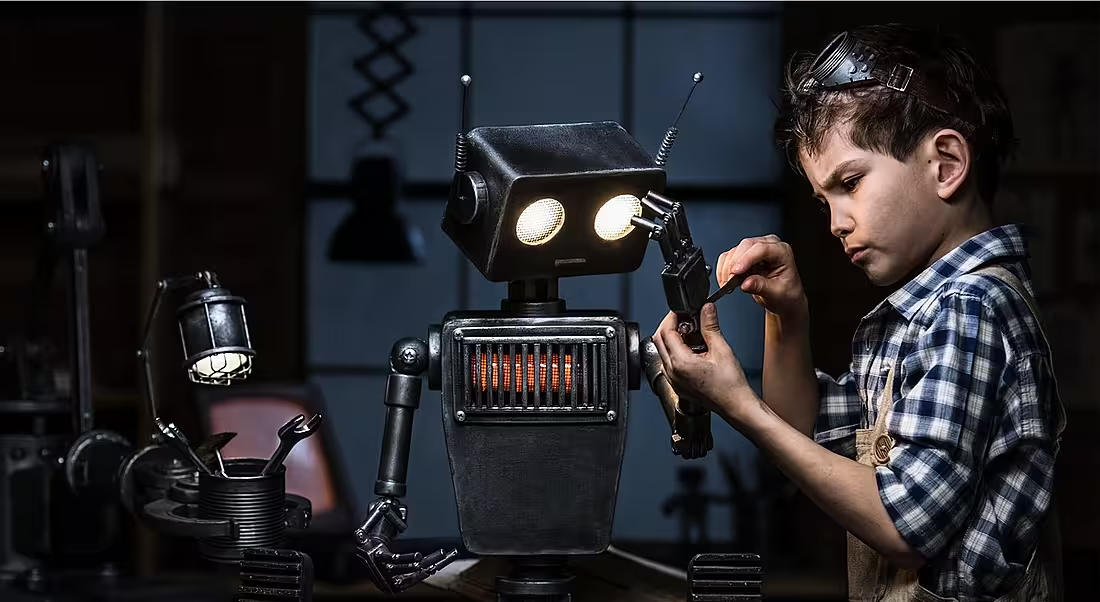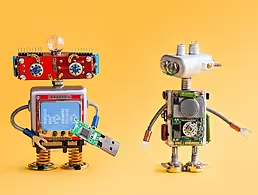Want to design and create the robots of the future? Here’s what you need to know to become a professional robotics engineer.
How cool would it be to work in robotics? Working on cutting edge technology and artificial intelligence (AI) is exciting and innovative.
But what kind of skills do you need to be qualified to work with robots? Where should you go to learn about the industry? What kind of jobs should you be looking for?
Robotics engineering is the specific career track you’re after if you want to work with robots and AI. To kick off March of the Machines here at Siliconrepublic.com, we’re looking into how you can get there.
Robotics engineers can be split into two categories: those who focus on mechanical machine aspects and those focused on the intelligence and sensory side. Or, more simply, machine and mind.
“In many ways, the machine side of robotics is well developed,” said Prof Ronan Farrell, senior lecturer in electronic engineering at Maynooth University. “The current excitement is in the control of these machines, making them intelligent, more aware of their environments, reactive.”
What skills do I need?
For this mechanical strand of robotics, Farrell said you would need to learn about sensors and how to process signals from these sensors. He said you need to be able to make decisions and carry them out in a controllable fashion.
“That’s what I call the ‘Goldilocks problem’ – not too hot or not too cold. A good example in robotics is to ask a machine to pick up an egg without crushing it or dropping it. It’s surprisingly difficult.”
From the intelligence strand, you would also need to understand how people will react to these devices and how to ease interface issues. Farrell said robotics essentially falls into a blend of electronic engineering and computer science. This is what you should study to start your career track.
More specifically, Maynooth University has a bachelor of science degree in robotics and intelligent devices. Similarly, Limerick Institute of Technology has a bachelor of engineering degree in industrial automation and robotics systems.
“The most important experience [students] need to get is how to sense the world around them – electrically feeding into a computer,” said Farrell. “That sense-decide-act loop is critical.”
Speaking about the robotics programme in Maynooth, Farrell said first-year students are using a robot kit that allows them to select their own sensors, write their own programmes and build their own robotic units.
“When you give them a challenge, students have an amazing ability to construct their own unique solutions that implement this sense-decide-act functionality,” he said.
![]()
Where do I go next?
Once you’ve obtained your engineering, computer science or robotics degree, Farrell said there are two primary avenues in the sector: robotics and embedded systems, or intelligent devices. The latter is booming in the job market.
“It is hard to imagine any electronic device that has no software, and truly unique devices usually only come with unique or customised hardware,” said Farrell.
With the huge push for IoT, smart devices and advanced technology in everything from entertainment to the environment, it’s no wonder employment in this area is so healthy.
When it comes to the robotics strand, Farrell said that, while it’s still a relatively new area, it’s growing. “Obviously, self-driving cars and drones are the highest profile use cases, but in practise, there are opportunities in the areas of home automation, toys, home-help for those with medical issues, agriculture and environmental monitoring.”
Farrell also said that there will be more uses and needs for robotics engineers in the future. “One hypothetical application is in a postal office or a warehouse,” he said. “The challenge of sorting and posting packages of different shapes and sizes is still mostly a human task due to the complexity, but that will change.”




